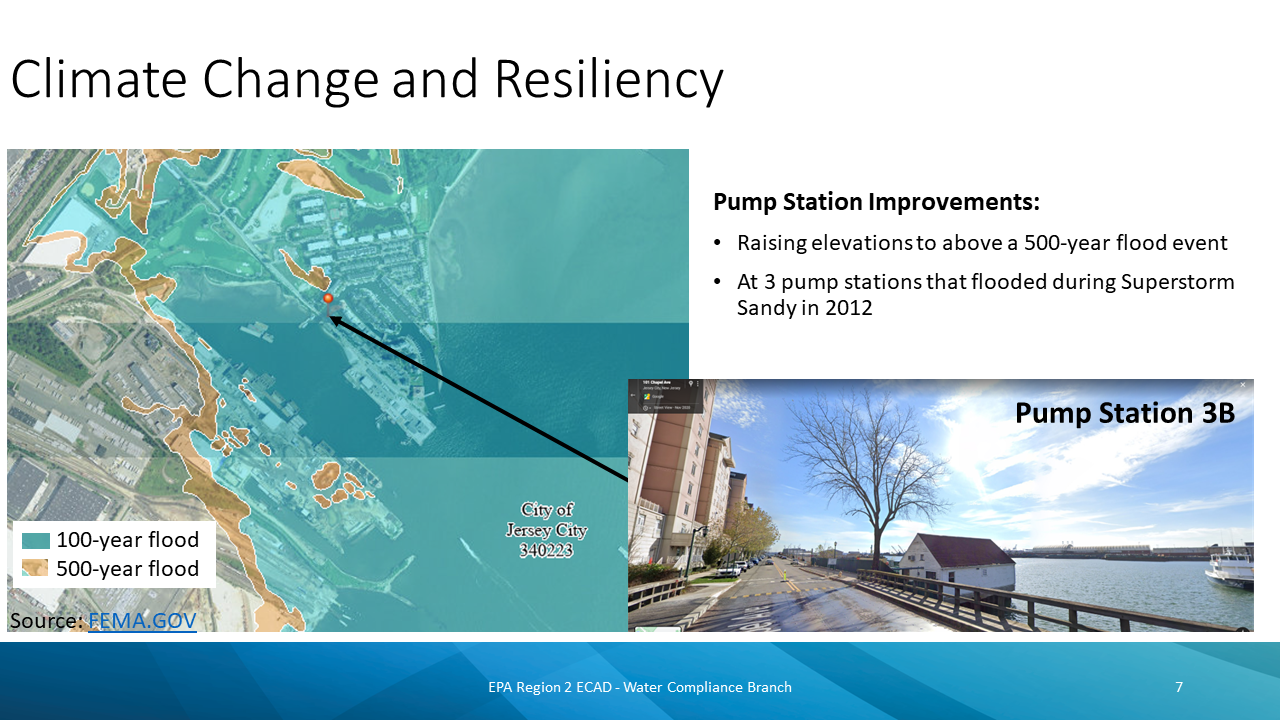Incorporating Climate Adaptation into Enforcement and Compliance Actions
Communities nationwide are already experiencing the impacts of climate change (e.g., floods, fires, hurricanes, drought, extreme weather events). As of November 1, 2024, there have been 24 confirmed weather/climate disaster events with losses exceeding $1 billion each impacting the United States. The impacts of climate change pose additional challenges for regulated entities to remain in compliance with environmental laws and for communities to prepare for and recover from extreme weather events.
Considering climate adaptation and resilience in the Environmental Protection Agency’s enforcement and compliance activities provides an opportunity for regulated entities to strengthen their adaptive capacity, consider climate change risk in their planning, and increase their resilience so that they are better able to anticipate, prepare for, withstand, and recover from the disruptive impacts of climate change.
EPA’s enforcement and compliance program is building climate resilience into our enforcement and compliance assurance activities by considering relevant climate risks in enforcement matters and including, where appropriate, resilient responsive actions to projected impacts of climate change.
In June 2024, EPA’s enforcement program issued a memorandum to update the December 2016 “Framework for Protecting Public and Private Investment in Clean Water Act Enforcement Remedies” and expands its scope to include enforcement actions brought under the Safe Drinking Water Act. The 2024 memorandum outlines a number of actions that the agency’s enforcement program can take to accelerate resilience and help advance the protection of communities. Read more: Addressing Climate Vulnerabilities in Water Enforcement Remedies.
Examples of climate change adaptation and resiliency efforts in EPA’s enforcement and compliance programs include:

- Atlantic City, New Jersey: In September 2024, EPA reached a settlement with Atlantic City, NJ to correct Clean Water Act violations of stormwater management requirements. The city agreed to perform a voluntary supplemental environmental project (SEP) to replace about 18,000 square feet of traditional asphalt with permeable pavement. This pavement allows water to pass through, reducing runoff and filtering pollutants. This pavement upgrade will prevent pollutants from entering the stormwater system and enhance the city’s resilience to climate change by managing stormwater more effectively. Read more: Atlantic City Settlement will Result in Better Resilient Management of Stormwater press release.
- Ritz-Carlton in the USVI: In July 2023 EPA reached a settlement with the Ritz-Carlton Resort on St. Thomas in the U.S. Virgin Islands for failure to address Clean Water Act monitoring and reporting violations for wastewater from the resort. The Ritz-Carlton agreed to perform a SEP to install an oil and water separator and two sediment traps to abate the discharge of oil and/or sediment into Turquoise Bay and a mangrove wetland during heavy rainfalls that are likely to increase in the future due to the changing climate. Read more: EPA Fines Ritz-Carlton Resort for Violations of the Clean Water Act press release.
- Jersey City Municipal Utilities Authority: In January 2022, EPA reached a settlement with Jersey City Municipal Utilities Authority for failure to properly operate and maintain its combined sewer system, which led to repeated releases of untreated sewage into the Hackensack River, Hudson River, Newark Bay and Penhorn Creek. Under the settlement, the city will incorporate climate change adaptation and resilience best practices for upgrades to its sewer system to ensure it is better prepared to withstand severe storms and hurricanes. Additionally, the city proposed to expand the scope of work for the pump station improvements beyond the settlement requirements by incorporating higher minimum design thresholds that the Federal Emergency Management Agency (FEMA) established after Superstorm Sandy, including raising elevations and adding resiliency measures for 500-year storm events, which are required by the state for loan funding approval. Read more: City to Make Significant Improvements to Sewer and Drinking Water Systems Benefiting Underserved Communities press release.
- U.S Army Garrison Fort Buchanan, PR: In 2022, EPA reached a settlement with the U.S. Army for Safe Drinking Water Act violations for the Risk and Resilience Assessment (RRA) and Emergency Response Plan (ERP) requirements at U.S Army Garrison Fort Buchanan in Puerto Rico. The settlement requires the Army to conduct an assessment of the risks to, and resilience of, its community water system, including risk from natural hazards. The Army certified completion of an RRA and ERP for the Fort Buchanan community water system and paid an administrative penalty, the first such penalty issued under SDWA section 1433. Read more: December 6, 2022 Consent Agreement.
- Greenville and Hattiesburg, MS: In 2020, EPA reach settlement agreements with the cities of Greenville and Hattiesburg, MS related to Clean Water Act violations for failure to properly operate and maintain its Wastewater Collection and Transmission Systems. The settlements require that the work to eliminate sanitary sewer overflows and maintain compliance with the Clean Water Act be performed using sound engineering practices, including practices to improve the resilience of the sewer systems. Read more: Greenville, MS Settlement Summary and Hattiesburg, MS Settlement Summary.
